X-Linked Hypophosphatemia: Meet the Yorkshire mother whose children have inherited her rare genetic condition
Every day is a struggle for Robyn Sharpe. Not only does she have to cope with her own health problems, she has to look after her two children who suffer the same extremely rare condition.
Robyn, 32, from Barnsley and her children Leo, six and Eva, three, were all born with X-Linked Hypophosphatemia (XLH) a metabolic condition characterised by low levels of phosphate in the blood – causing brittle bones, bowed legs and pain throughout the body.
Advertisement
Hide AdAdvertisement
Hide AdLeo and Eva both developed craniosynostosis (fusing of the skull) as a symptom of XLH and have both had surgery to extend the bone to allow for the brain to grow.
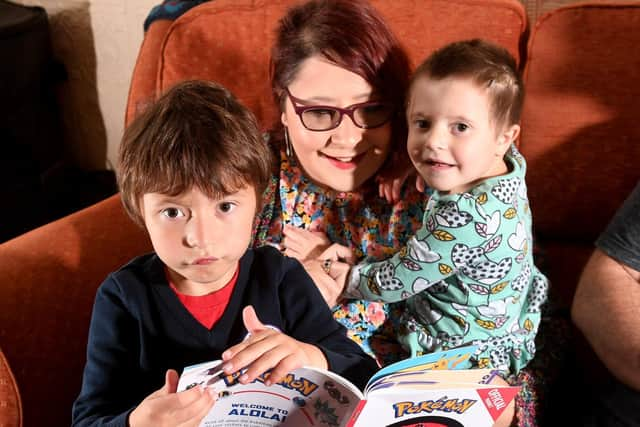

“Because their skulls fused early their brains would have had nowhere to go if they didn’t have the surgery,” explains Robyn.
They also have to have doses of phosphate and calcium several times a day to strengthen their bones and require an injection of a new drug called Burosumab every two weeks.
Robyn has her own daily battles and struggles to get around due to poor mobility – last year, she fell down the stairs in her home and needed surgery, although the injury will not likely heal because her bones are so brittle. As a result it has taken a toll on her mental as well as her physical health.
Advertisement
Hide AdAdvertisement
Hide AdAlthough XLH is hereditary – someone with it has a 50:50 chance of passing it on to their children – Robyn was the first person in her family to suffer from it, which is known as a spontaneous genetic mutation.
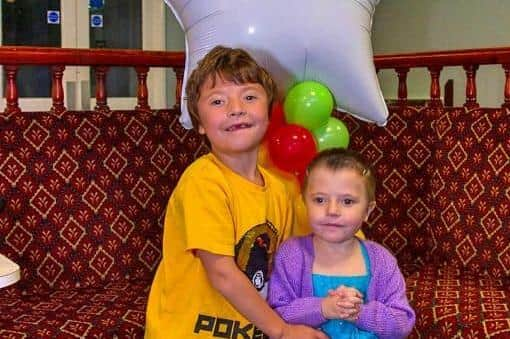

“It was my mum that noticed something was wrong, when I was about two years old,” recalls Robyn.
“There was a girl in our street who was younger than I was who was running around and I wasn’t doing anything.”
Robyn’s mum took her to a local paediatrician who took blood samples and sent them to hospitals all over the UK in a bid to discover what was wrong with her. “The first thing the paediatrician said to my mum was not to research it. There was no Google then so she went to the local library and found every bit of information she could although there wasn’t very much. But what she did found really scared her as it said it could cause brain tumours, but the doctor said I didn’t have that version and that was why he told her not to research it but she said she wanted to do everything she could to help me.”
Advertisement
Hide AdAdvertisement
Hide AdAlthough the condition means Robyn struggles to walk due to bowing in her legs, it wasn’t until she was 11 that she realised she was different.
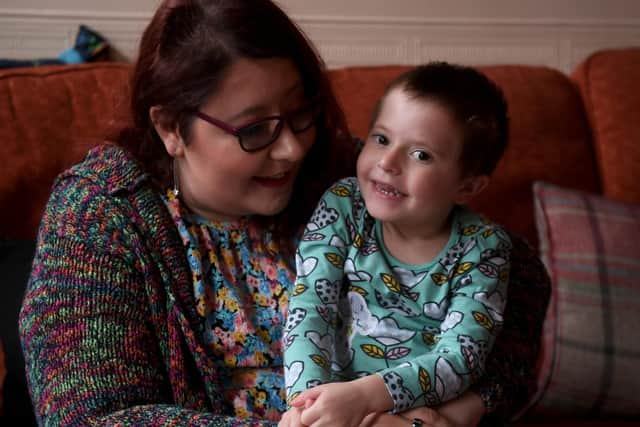

“I have never known anything else so to me this is normal,” she says. “But when I went to high school I was badly bullied, people laughed at me because I walked funny. “ Robyn was just 14 when she first suffered depression.
“I used to think ‘why me? what did I do wrong?’ But as I became an adult I started to think differently and became more accepting of it.
“Now I wouldn’t have it any other way. It is something that is unique to me and makes me who I am. It has made me a fighter and I am proud of that.”
Advertisement
Hide AdAdvertisement
Hide AdRobyn, who is married to Philip, always wanted children but she knew there was a 50:50 chance her children would inherit XLH from her.
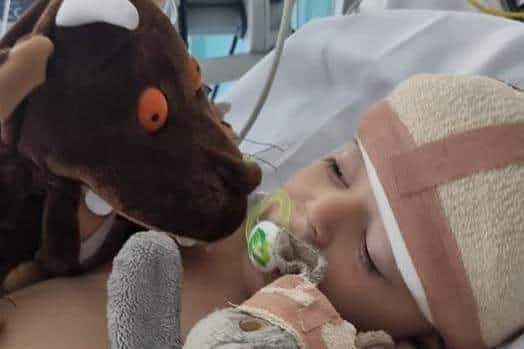

“A lot of people do ask me why I decided to have children when I knew they could inherit the condition, but in a weird sort of way I feel lucky.”
Although Robyn is deemed to be quite a severe case, she has never had to have surgery, other than to her broken leg.
Leo and Eva however have both had to undergo surgery to expand their craniums to allow their brains to grow.
Advertisement
Hide AdAdvertisement
Hide Ad“Both the children are very small for their age which is a symptom of XLH and they can’t walk very far but they can do most things other children can – they just do it slower and sometimes in a different way,” says Robyn.
Leo also has Special Educational Needs and is being assessed for autism. Both children are in mainstream school with extra support.
In 2019, Robyn’s stepfather Chris Horton set up a charity called Leo’s Mission to raise money for XLH UK charitable trust and spread awareness of the rare disease.
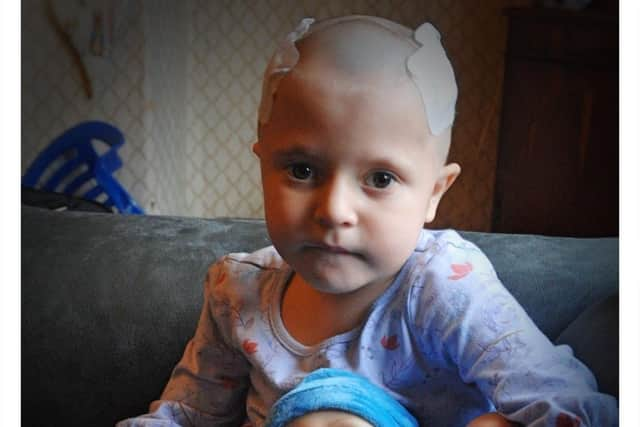

“Chris is in a band and the band wanted to do something for charity. He told them about us and they were all nearly in tears. We thought they’d raise £100 or so, but we’ve done quite a few fund-raisers since then and Leo’s Mission has raised more than £3,000 to raise awareness of XLH but for more research.”
Advertisement
Hide AdAdvertisement
Hide Ad“Before we started this Facebook page in 2019, nobody had ever heard of it,” says Chris,
“It means a lot to us because the more people we can get to be aware of this disease, the more diagnoses there will be.”
It had been thought that one in 20,000 had XLH but it more research has found that figure is likely to be more like one in 100,000.
“XLH UK and their Facebook group have really helped me,” says Robyn. “To talk to people with the same condition as me just stops you feeling so alone.”
Advertisement
Hide AdAdvertisement
Hide AdRobyn says she is lucky that she lives quite close to Sheffield which is one of just 10 centre in the UK that treats XLH.
“I have to go to hospital every six months and the children every two to four months. It’s a lot of appointments as there are other things that XLH can lead to.” Robyn is in constant pain
due to her condition which
she says does affect her metal health.
“The children do suffer pain in their legs but on the whole they are happy children. They don’t know any different.”
Chris and Robyn will be doing a bucket collection on Friday December 10 at the Barnsley Alhambra Centre and the mayor of Barnsley will be attending to help raise awareness.
For more information visit xlhuk.org